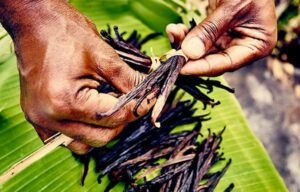Visa Information / Entry requirements – Comoros
This page reflects the UK government’s understanding of current rules for people travelling on a full ‘British Citizen’ passport from the UK, for the most common types of travel.
The authorities in Comoros set and enforce entry rules. If you’re unsure how Comoros’ entry requirements apply to you, contact its UK embassy, high commission or consulate.
All travellers
All travellers need a visa to enter or travel through Comoros as a visitor. See Visas.
If you’re fully vaccinated
For passengers with proof of full vaccination against COVID-19, pre-departure PCR tests are no longer required for entry to Comoros, or for departure from Comoros (unless required for the next destination).
Proof of vaccination status
You need to provide proof of vaccination in order to enter Comoros, otherwise a negative PCR test result is required.
If you’re not fully vaccinated
For passengers without proof of full vaccination, a negative PCR test result from within 72 hours before travel is required for entry to Comoros, and a PCR test is required for departure from Comoros (regardless of next destination). The price of PCR tests in Comoros is 15,000 Comorian Francs. See information on getting a test before entry.
If you’ve had COVID-19 in the past year
Entry requirements for Comoros are the same for all travellers, regardless of your COVID-19 recovery status.
Children and young people
There are no specific entry requirements for children and young people. A PCR test, undertaken less than 72 hours before departure is required for entry into Comoros, regardless of age.
If you’re transiting through Comoros
Transiting is when you pass through one country on the way to your final destination.
Transiting through Comoros is permitted for travellers who have undertaken a PCR test less than 72 hours before departure.
Exemptions
There are no exemptions to the requirement that a PCR test must be undertaken less than 72 hours before departure for entry into Comoros.
Check your passport and travel documents before you travel
You should check with your travel provider to make sure your passport and other travel documents meet their requirements.
Passport validity
If you are visiting Comoros, your passport should be valid for a minimum period of 6 months from the date you arrive.
Visas
You will need a visa to enter or travel through Comoros as a visitor. You can get a visa on arrival at Hahaya airport or at other points of entry for €30. Details are available on the Hahaya airport website (in French).
UK Emergency Travel Documents
UK Emergency Travel Documents (ETDs) are accepted for entry, airside transit and exit from Comoros










 About
About